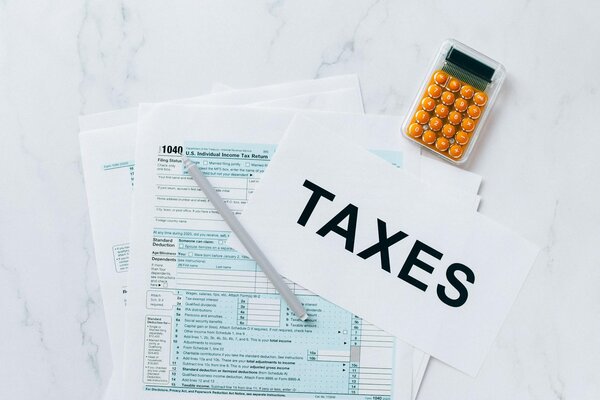
The war in Ukraine isn't only altering geopolitics, it's directly impacting your wallet here in the UK. Since Russia's invasion in early 2022, we've witnessed profound economic shifts, heightened inflation, and a changing tax landscape. But what exactly are the repercussions for the UK economy and your personal finances?
The Economic Fallout of Russia's Invasion
Russia's invasion of Ukraine in February 2022 sent shockwaves through global markets. When Russian tanks rolled into Ukraine, energy prices soared, with rising fuel costs becoming a major driver of inflation.
Trade flows were disrupted, and inflation surged across the UK and Europe. Britain faced sharply rising costs for essentials like petrol, gas, and groceries. Despite government support packages, inflation in 2022 reached a 41-year high of 11.1%. The fall in household incomes and GDP became evident as the conflict intensified, making budgeting more challenging for UK households dealing with day-to-day expenses.
In the first year of the war, Ukraine experienced a significant GDP loss and recession, highlighting the immediate economic impact of the conflict. Wage growth failed to keep pace with soaring food and energy prices, leading to real income declines for workers and exacerbating the cost of living crisis.
Market disruptions also led to sharp declines in share prices, especially for firms with direct trade or ownership links to Russia. The UK's energy demand has declined over time due to efficiency improvements and structural changes in industries, which has affected the country's energy import needs and overall energy strategy. But how exactly does this war halfway around the world continue to impact UK taxpayers today?
Energy Market Turbulence and Its Ripple Effects
The Russian invasion of Ukraine sent shockwaves through global energy markets, and the UK economy has felt the full force of this turbulence. In the first two weeks of the conflict, energy prices surged by over 25%, driving up costs for households and businesses alike. This spike in energy prices has been a major contributor to higher inflation, squeezing real household incomes and slowing economic growth across the country.
While the UK has made strides in reducing its energy intensity, down 43% over the past two decades, the nation still relies heavily on gas and oil imports. The disruption of supply chains and reduced availability of energy resources due to the war has kept prices elevated and supply uncertain. In response, the government has rolled out support measures to help consumers manage higher energy bills and protect household incomes.
Looking ahead, the autumn budget is expected to introduce further initiatives aimed at supporting economic growth and cushioning the impact of higher inflation on real household incomes. As the conflict continues, the government’s ability to adapt and provide targeted support will be crucial for maintaining economic stability and helping UK consumers weather ongoing energy market volatility.
Sanctions, Trade Disruptions, and the UK Economy
Sanctions imposed on Russia following its invasion of Ukraine have reshaped global trade dynamics, with significant consequences for the UK economy. Trade disruptions have led to a reduction in exports to both Russia and Ukraine, affecting a range of industries and putting pressure on employers and employees who rely on these markets.
To address these challenges, the government has introduced measures to support businesses and workers impacted by trade disruptions. At the same time, the UK has implemented its own sanctions on Russian individuals and companies, which has had a notable effect on financial stability and market confidence. The Bank of England has stepped in to help maintain financial stability and support economic growth during this period of uncertainty.
Additionally, the UK is working closely with other European countries to coordinate responses to the Russian invasion of Ukraine, aiming to minimize the broader economic impact of trade disruptions. These collaborative efforts are essential for safeguarding the UK economy and ensuring continued growth in the face of ongoing global challenges.

Personal Hardship and Poverty: The Human Cost
Beyond the headlines and economic statistics, the war in Ukraine has brought about profound personal hardship and increased poverty, both in the region and around the world. Millions have been displaced, creating an urgent need for humanitarian support. The UK government has responded by offering financial assistance and housing to refugees from Ukraine, demonstrating a commitment to supporting those affected by the conflict.
The war has also disrupted global food security, as reduced food production and distribution in Ukraine and Russia have led to higher prices and shortages in many countries. To address these challenges, the UK is collaborating with international organizations to deliver humanitarian aid and support food security initiatives.
Domestically, the government has taken steps to help low-income households cope with rising costs. This includes raising income tax thresholds and increasing the national minimum wage, providing much-needed relief to those most vulnerable to the economic fallout of the conflict. These measures reflect the UK’s ongoing commitment to reducing poverty and inequality, both at home and abroad, as the war continues to impact lives and livelihoods.
Financial Support: What’s Available and What’s Next?
In response to the economic challenges brought on by the conflict in Ukraine, the UK government has introduced a comprehensive package of financial support for households and businesses. This includes grants, loans, and targeted tax relief, as well as direct assistance with energy bills and food costs to help offset the impact of higher inflation.
Recognizing the strain on businesses affected by trade disruptions, the government is also working with banks and lenders to ensure access to financial support and maintain economic activity. These efforts are designed to protect real household incomes and promote economic growth during a period of heightened uncertainty.
Looking forward, the autumn budget is expected to unveil additional measures aimed at bolstering financial stability and supporting economic recovery. The UK is also partnering with international organizations to provide financial aid to Ukraine and contribute to broader recovery efforts.
As the situation evolves, ongoing government support will be vital in helping both individuals and businesses navigate the economic consequences of the conflict.
International Cooperation: The UK’s Role on the World Stage
The UK has taken a leading role in international cooperation to address the far-reaching impacts of the conflict in Ukraine. Working alongside other European countries and global organizations, the government is coordinating efforts to respond to the crisis and mitigate its effects on the economy and global food security.
A key focus has been supporting financial stability and reducing the risk of economic instability, both within the UK and internationally. The government’s commitment to international trade and economic growth is evident in its efforts to maintain open markets and support those most affected by trade disruptions.
By collaborating with international partners, the UK is helping to safeguard global food security, promote economic growth, and reduce poverty. These actions underscore the country’s dedication to maintaining financial stability and supporting recovery, ensuring that the UK remains a strong and reliable partner on the world stage during this period of significant conflict and change.

Technological Innovation Helping Inform Finances
One unique approach shaping how we understand the Ukraine war’s economic impacts is advanced AI-driven journalism. Digital services are also being improved to provide accessible and innovative solutions that support economic resilience and efficiency.
The Telegraph’s groundbreaking use of artificial intelligence helps translate critical news into multiple languages. By providing reporting accessible in Ukrainian, Russian, and across wider regions, this innovative use of technology helps ensure clarity and accuracy, key resources for global economic forecasting. But how can the average UK taxpayer benefit from these insights?
Practical Takeaways for Navigating Economic Uncertainty
Here are practical tips to help you respond financially to ongoing economic volatility related to the Ukraine war:
- Monitor Interest Rates Closely: Be proactive in refinancing mortgages to secure lower rates if options become available.
- Review Investment Portfolios: Consider whether your investment strategy adequately accounts for global instability.
- Stay Updated on Tax Changes: Regularly check HMRC announcements for potential adjustments to allowances or relief schemes.
Ultimately, staying informed helps protect and optimise your finances amid uncertainty.
Conclusion
War’s ripple effects still felt in UK finances. While the Ukraine conflict may seem like a distant crisis, its consequences are very real for UK households. From rising grocery prices and fuel bills to potential tax adjustments and altered mortgage rates, the war has left a financial footprint that’s still visible in 2025.
For taxpayers, staying informed and adaptive is more important than ever. By tracking economic indicators, preparing for shifts in HMRC policy, and making informed investment decisions, individuals can safeguard their finances during uncertain times. The Ukraine war underscores a critical lesson: in our interconnected world, global events can reshape local realities.
Frequently Asked Questions
How has the war in Ukraine affected UK inflation?
Energy disruptions and global supply chain issues caused inflation to peak at 11.1% in October 2022, a 41-year high.
Are UK taxes going up because of the Ukraine war?
Not directly, but increased public spending may influence future decisions on income tax bands and thresholds.
What does bracket creep mean for taxpayers?
Bracket creep happens when inflation pushes salaries into higher tax bands, raising tax bills even if real income doesn’t increase.
Will interest rates stay high in 2025?
While they may ease slightly, rates are likely to remain elevated as the Bank of England works to keep inflation under control.
How can I protect my finances during economic uncertainty?
Regularly review your financial plan, watch for HMRC changes, and adjust borrowing and investment strategies to reflect global trends.











